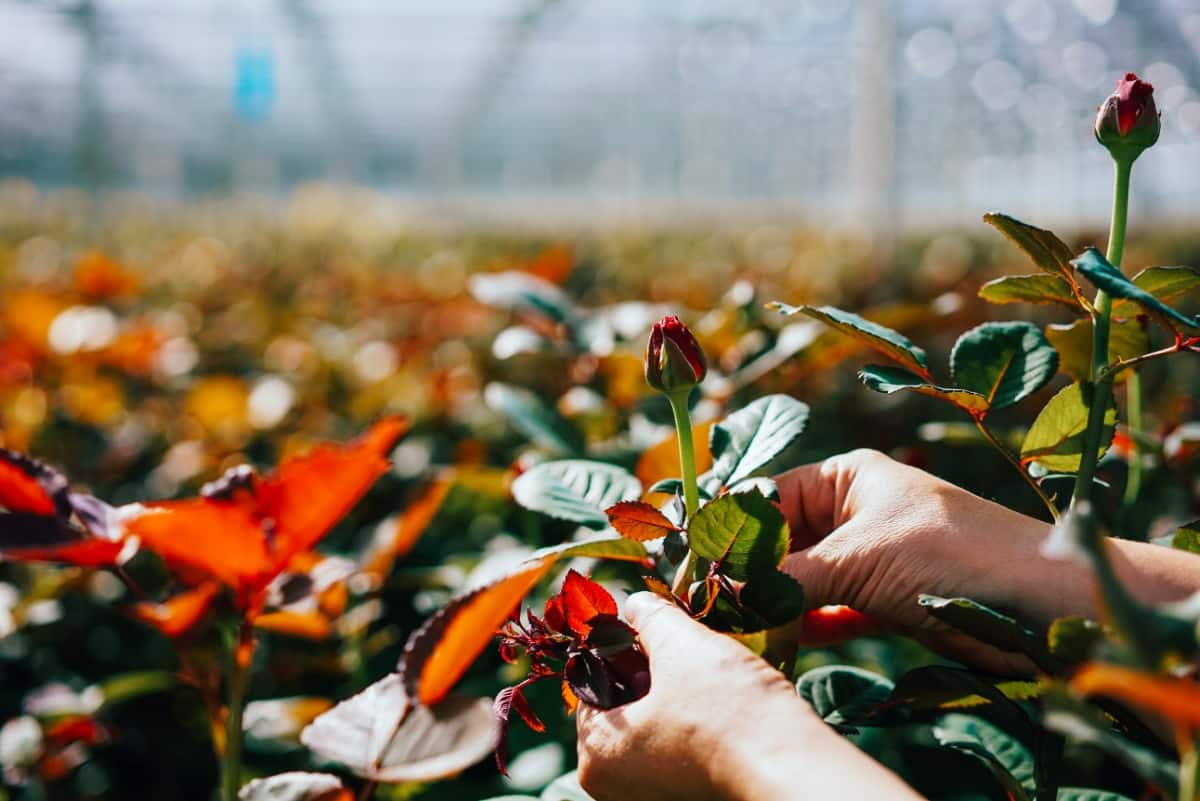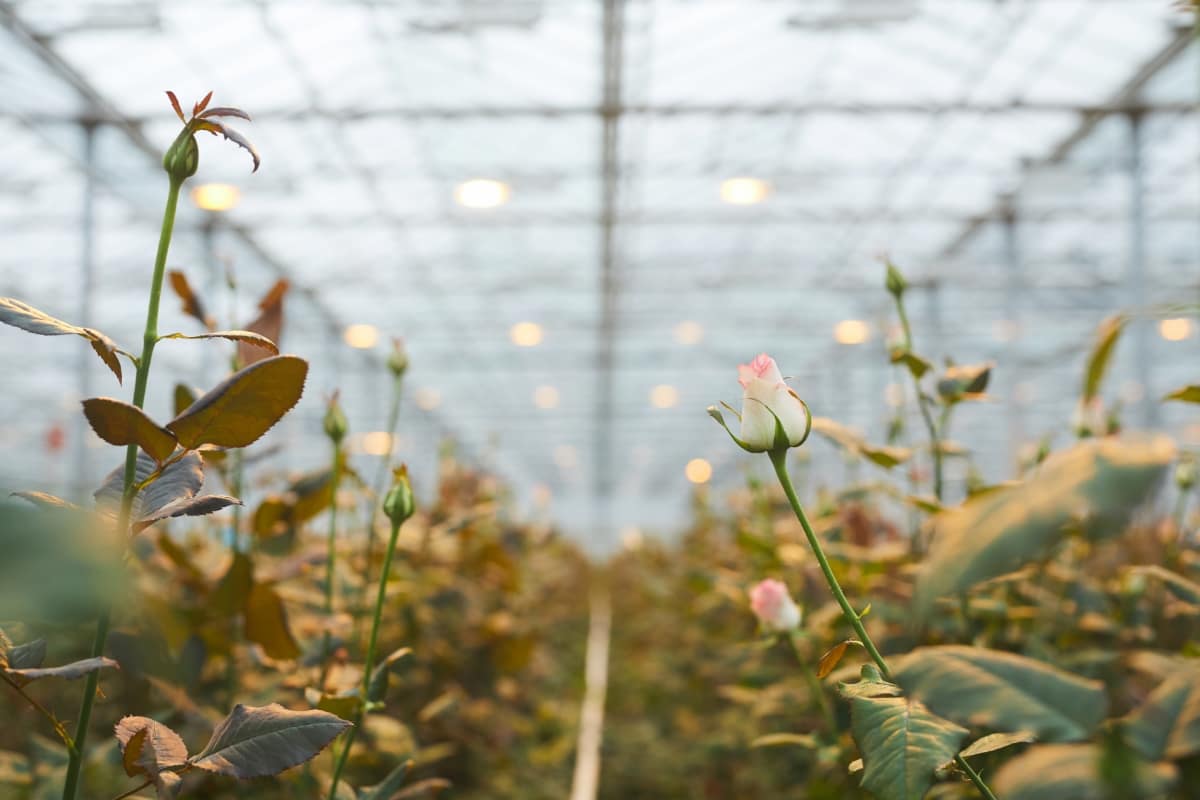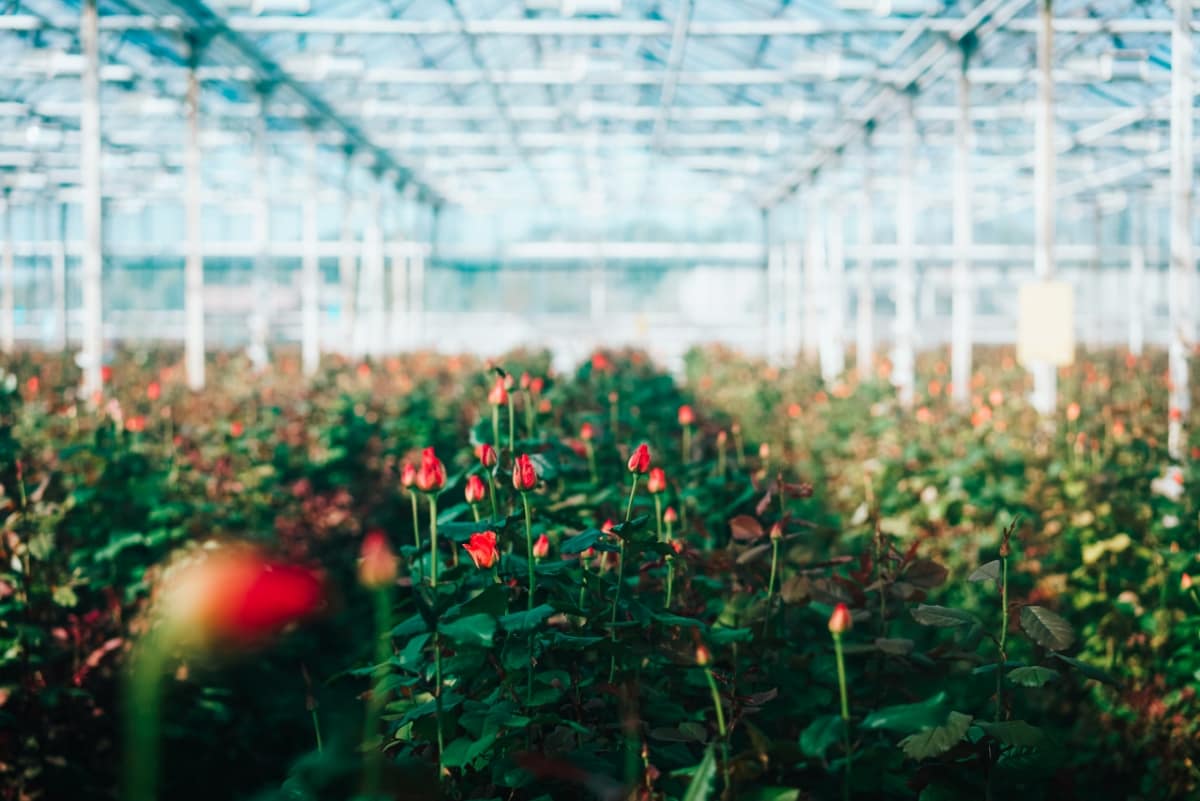Dutch rose cultivation has become a pivotal segment in Indian agriculture, marking a significant transition from traditional farming methods to modern, profitable flower farming. The allure of Dutch rose farming lies in its lucrative nature, making it one of the most profitable flower farming ventures.

The trend toward growing Dutch roses is apparent in the use of modern methods like cultivating them in greenhouses and open fields, which greatly improve both the quality and quantity of the harvest. The varieties of Dutch roses are diverse, contributing to their popularity in both domestic and international markets, particularly in the Dutch rose export sector. The success stories of farmers across India who have embraced Dutch rose farming highlight the potential of this enterprise.
From utilizing Dutch rose plants that thrive under controlled conditions to adopting innovative marketing and cultivation strategies, these stories are a testament to the transformative power of Dutch rose farming in India. Dutch rose farming has gained popularity in India due to its high demand in both domestic and international markets.
10 Dutch Rose Farming Success Stories
Rajesh Kumar – Haryana
Rajesh Kumar, a farmer from Haryana, exemplifies the success achievable through Dutch rose cultivation. Transitioning from conventional agriculture, he adopted modern greenhouse technology and efficient irrigation systems. This shift not only resulted in higher yields of superior-quality roses but also set a precedent in his region, encouraging other farmers to explore the prospects of Dutch rose farming in open fields. Rajesh’s story is a beacon of innovation and adaptability in the realm of commercial floriculture.
Sunita Devi – Uttarakhand
Sunita Devi’s journey in Uttarakhand is a powerful narrative of sustainable income through Dutch rose cultivation. Her endeavor began with government-backed training programs, leading to the establishment of a flourishing Dutch rose farm. This venture not only elevated her financial status but also created job opportunities for local women. Sunita’s farm, thriving under her guidance, stands as a symbol of women’s empowerment and community development in agriculture.
Vijay Singh – Maharashtra
Vijay Singh from Maharashtra ventured into Dutch rose cultivation with a focus on innovative approaches like hydroponics and drip irrigation. His dedication to maintaining high-quality standards propelled his farm to success in the export market. Vijay’s story underscores the importance of embracing modern cultivation techniques and the potential of Indian farms in the global Dutch rose export arena.
Anjali Patel – Gujarat
Anjali Patel’s foray into Dutch rose farming in Gujarat is an inspiring tale of female empowerment in agriculture. Her expertise in floriculture, coupled with international collaborations, led to the establishment of a highly profitable Dutch rose farm. Anjali’s success not only contributes to the state’s horticultural exports but also highlights the significant role of women in the agribusiness sector.
In case you missed it: Different Types of Rose Propagation Methods: Exploring Various Rose Propagation Techniques

Amar Singh – Punjab
Amar Singh from Punjab transformed his traditional farming land into a cutting-edge Dutch rose farm. Integrating sustainable practices and precision farming technologies, he achieved year-round production of high-quality roses. Amar’s farm is now a focal point for agro-tourism and skill development in the region, showcasing the multifaceted benefits of Dutch rose cultivation.
Meena Sharma – Karnataka
In Karnataka, Meena Sharma’s success in Dutch rose farming emphasizes the effectiveness of cooperative farming. Joining forces with other farmers, they pooled resources and knowledge, leading to the establishment of a successful Dutch rose cultivation enterprise within a greenhouse infrastructure. This collective effort highlights the power of collaboration in achieving agricultural success.
Sanjay Verma – Telangana
Sanjay Verma in Telangana adopted an innovative approach to Dutch rose farming, focusing on vertical integration and direct marketing strategies. By forming alliances with floral designers and event planners, he carved a niche market for his premium Dutch roses. His farm’s success story is a testament to the potential of specialized marketing in floriculture.
In case you missed it: How to Use Neem Oil on Rose Plants: Best Natural Way to Eradicate Rose Pests

Priya Yadav – Rajasthan
Priya Yadav in Rajasthan demonstrates the sustainable integration of water management practices in Dutch rose farming. Her efficient irrigation techniques and rainwater harvesting systems in an arid environment led to remarkable productivity while conserving vital water resources. Priya’s experience is an exemplary model of environmental sustainability in commercial floriculture.
Rahul Gupta – Uttar Pradesh
Rahul Gupta’s story in Uttar Pradesh highlights the significant impact of technology transfer and research in Dutch rose farming. His collaboration with agricultural universities and research institutions was a game-changer, introducing state-of-the-art innovations into his farming practices.
This strategic move resulted in enhanced productivity and improved disease resistance in his Dutch rose cultivation. Rahul’s approach showcases the importance of embracing scientific advancements and research collaborations in modern agriculture, particularly in specialized sectors like Dutch rose farming.
Neha Kapoor – Andhra Pradesh
Neha Kapoor in Andhra Pradesh represents a new wave of entrepreneurial spirit in Dutch rose farming, characterized by the integration of e-commerce platforms. By harnessing the power of digital marketing and online retail channels, she dramatically expanded her market presence. Her approach enabled direct sales of premium roses, reaching diverse customer segments both in India and overseas. Neha’s success story is a testament to the potential of digital platforms in transforming traditional farming into a globally competitive business, catering to the evolving demands of the digital age.
Dutch Rose Cultivation Subsidy in India
In India, the government provides subsidies to encourage Dutch rose cultivation, recognizing its potential to boost the agricultural economy and enhance the livelihoods of farmers. These subsidies vary by state and are often part of broader horticulture development programs. For instance, under schemes like the National Horticulture Mission (NHM) and Rashtriya Krishi Vikas Yojana (RKVY), farmers can avail of subsidies ranging from 50% to 75% for setting up polyhouses and greenhouses, which are essential for Dutch rose cultivation.
In case you missed it: How to Use Baking Soda to Control Powdery Mildew on Roses: Benefits and Application

In some states, the subsidy can cover up to 90% of the total cost for SC/ST farmers. Additionally, subsidies are also available for irrigation systems, like drip irrigation, and for training programs in floriculture. The exact figures and eligibility criteria can vary, so farmers are advised to consult local agricultural departments or government portals for the most current information. These subsidies play a crucial role in reducing the initial investment costs, making Dutch rose farming a more accessible and attractive venture for farmers across India.
Conclusion
The success stories of Dutch rose cultivation across India reflect a remarkable transformation in the agricultural landscape. From the innovative approaches in Maharashtra to the sustainable practices in Rajasthan, each story underscores the adaptability, resilience, and entrepreneurial spirit of Indian farmers.
The integration of technology, research, and digital platforms has not only enhanced productivity and quality but also expanded market reach, both domestically and internationally. The support from government subsidies further reinforces this growth, making Dutch rose cultivation an increasingly viable and lucrative option.
- Feed Your Flock for Less: Top 10 Tips to Save on Chicken Feed
- Ultimate Guide to Ossabaw Island Hog: Breeding, Raising, Diet, and Care
- Hatching Answers: The Top 10 Reasons Your Chickens Aren’t Laying Eggs
- Eggs and Economics: Breaking Down the Cost of Raising Backyard Chickens
- Defend Your Greens: Proven Methods to Keep Iguanas Out of Your Garden
- Ultimate Guide to Cinnamon Queen Chicken: A Comprehensive Guide for Beginners
- Ultimate Guide to California Tan Chicken: Breeding, Raising, Diet, Egg-Production and Care
- Ultimate Guide to Marsh Daisy Chicken: Breeding, Raising, Diet, and Care
- 10 Types of Chicken Farming Businesses You Can Start for Profits